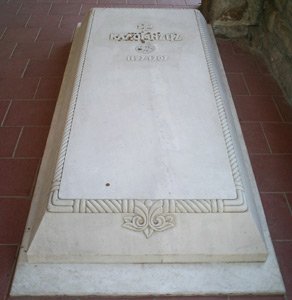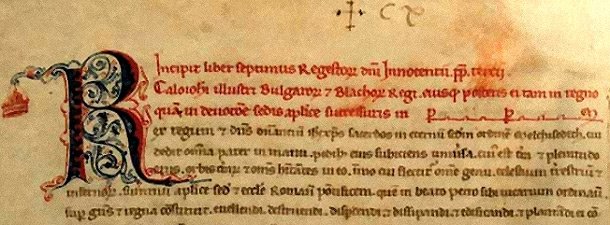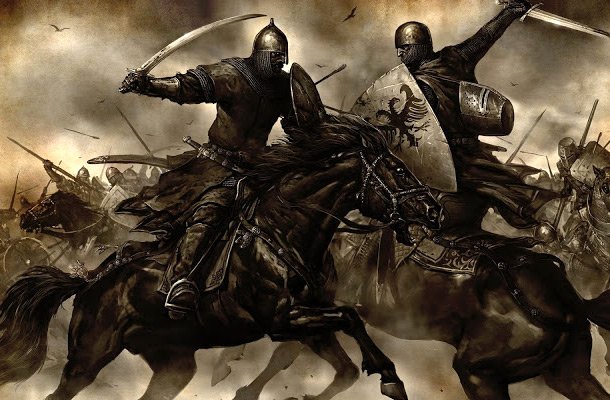One of the glorious medieval Bulgarian kings - Kaloyan, ascended the throne in tumultuous times. His elder brothers – The boyars Peter and Asen headed a revolt for the liberation of Bulgaria from Byzantine rule in 1185. The Bulgarian state was successfully restored after nearly two centuries of occupation. According to one of the clauses of the peace treaty with Byzantium Kaloyan was sent as a hostage to Constantinople. Two years later he escaped and returned home. Kaloyan helped his two brothers in ruling the country but Asen and Peter fell victims to conspirators. In 1197 the young prince was left alone at the backdrop of strong boyar opposition and war with Byzantium. But he had strong will, diplomatic talent, and skills to oppose his enemies. Kaloyan became a responsible statesman and an experienced politician despite the fact he took power when he was just 30 years old. His military campaigns against Byzantium were also successful and peace was finally achieved.

© Photo: wikipedia.org
One of the challenges before Kaloyan was an international recognition of the Bulgarian state and his own government after many years of foreign rule.
He inherited the throne from his brothers, but actually, they were not recognized by the foreign rulers.
"The question is not only in demand for prestige or in vanity. Recognition was of crucial importance,” says in an interview for Radio Bulgaria historian prof. Plamen Pavlov. “It is also true that the memory of the First Bulgarian Empire - one of the three great powers in medieval Europe was still alive. This is seen in the works of Western writers, especially from the XI-XII centuries. But domination over the Bulgarian state for about two centuries had left a lasting impression in the international status quo. "
Kaloyan, however, was cautious. It is known for example, that for several years he did not meet the proposal of Pope Innocent III to join the Church of Rome.
“Contacts between Kaloyan and the Pope repeatedly raise discussions among scientists. Very often it is assumed that the initiative was of the Pope, and that may actually be true,” Plamen Pavlov says. “On the other hand, there are historians who believe that Kaloyan was an active side, but then deliberately protracted negotiations, as he expected to settle matters with Byzantium. This is the most plausible scenario."
It is estimated that in the year 1200-1201 Kaloyan made an alliance with the Byzantine emperor Alexius Third Angel for this purpose. He was able to join to Bulgaria the lands of Dobromir Hriz (A Bulgarian aristocrat, who was an independent ruler in Macedonia). But then the Byzantine emperor refused him the promised recognition. When the knights of the Fourth Crusade entered Constantinople, Alexius fled to the fortress Debelt near today’s Burgas and offered recognition to Kaloyan. For the Bulgarian ruler, however it made no sense as Alexius was in practice not a ruler anymore. Furthermore, the Roman Church was then the authoritative center in Europe, which could solve the problem of Bulgaria’s international recognition. Kaloyan sent a reply to the Pope's letter requesting a royal crown and an independent church.

© Photo: wikipedia.org
Part of the correspondence with Pope Innocent III contains the words: "Kaloyan - Tsar of the Bulgarians and Vlachs." In 1204 Bulgaria and the Roman church signed union. Cardinal Leo proclaimed Kaloyan “King of Bulgarians and Vlachs” and Archbishop Basil became head of the Bulgarian Church. Orthodox traditions were preserved. In his letters to Innocent III Kaloyan said he would like to sign as emperor, while his high priest is called Patriarch of the Bulgarian Church. Thus, he wanted to create a bridge to the glorious traditions of the First Bulgarian Kingdom. The union with Rome lasted until 1235.
In the year when the Bulgarian ruler received recognition, Constantinople was conquered by the knights of the Fourth Crusade. Baldwin the First, Emperor of the newly established Latin Empire rejected proposals for good neighbor relations. The knights did not hide their conquest plans. The Greek aristocracy of Thrace then turned to Kaloyan.
"Kaloyan was prepared for the looming war,” says prof. Pavlov. “Very often in popular texts and novels, things are not presented in the most plausible way. This, of course, largely depended on scientific knowledge at the time. For example, when Fani Popova - Mutafova wrote her books, it was thought that the heavily armed knights’ army was a very scary thing and that the Bulgarians were not prepared. The truth is that the Bulgarian army had similar forces, as well as the Byzantines. Bulgarians had also seen knights before. Still, Kaloyan was aware that this was a dangerous opponent that could distract him from his main task - the unification of the Bulgarian lands. Peter and Asen in 1187 said that what they most wanted was to restore the kingdom, ‘as it was. ‘”
During the battle of Adrianople Kaloyan’s army dealt a devastating blow to the knights and Emperor Baldwin was captured and taken to Tarnovo. The Bulgarian ruler died two years later, during the siege of Thessaloniki. He was buried in the "Holy Forty Martyrs" church in the Old Bulgarian capital of Veliko Tarnovo.

© Photo: archive
"The most plausible theory in my opinion is that he was killed during a coup, says Plamen Pavlov. “However, there was a remarkable consistency of the then Bulgarian elite in their aim to strengthen the state and restore the territorial integrity of the kingdom. Tsar Kaloyan is a shining example of that."
English version: Alexander Markov
On 3 March, Bulgaria celebrates the 147th anniversary of its liberation f rom five centuries of Ottoman rule. The day was declared a national holiday in 1990 by a decision of the National Assembly. The Treaty of San Stefano, signed on 19 February..
Today is Cheesefare Sunday. According to Orthodox tradition, this day is observed on the eve of Great Lent, when Christians seek and give forgiveness to each other . It is also known as Sirni Zagovezni because it marks the last day before Lent, when..
Priest Lyubomir Bratoev is a direct participant in the events of t he founding of the Bulgarian Orthodox Church community in Berlin . He came to the capital of East Germany in the late 1980s as a doctoral student. And, like a typical Orthodox Christian..
30 March marks the end of the most blessed time of the year, as Muslims call the month of Ramadan. This year it started on 1 March, and the most..

+359 2 9336 661
